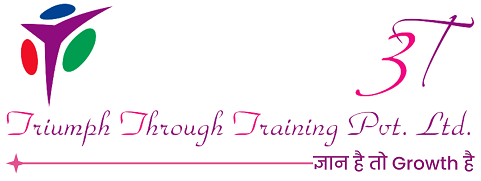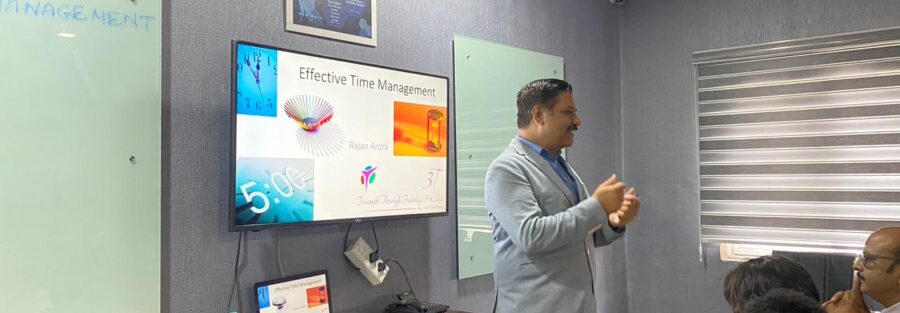Time—our most valuable, non-renewable resource. Every day, we have 24 hours, 1,440 minutes, and 86,400 seconds to invest or waste. In today’s fast-paced world, managing time is not just a skill; it’s an art that directly impacts productivity, work-life balance, and overall success.
Recently, I was conducting a Time Management Workshop at an esteemed organization, as part of their ongoing efforts to enhance employee efficiency and leadership capabilities. The session focused on empowering participants with actionable techniques to optimize their time, manage distractions, and align their tasks with energy levels for peak performance.
Some of the takeaways from the Workshop are:
* The 5-Minute Rule
Often, it’s the small tasks that pile up and overwhelm us. Tackling tasks that can be completed in 5 minutes or less helps build momentum and reduce the feeling of overload.
* Block Out Your Energy, Not Just Time
We emphasized how different tasks demand different energy levels. Participants learned to schedule high-focus tasks during their peak energy hours (generally mornings) and save low-energy tasks, like emails, for later.
* Prioritize with Purpose
Defining daily priorities is key to staying on track. By identifying and focusing on one major task per day, participants gained clarity and alignment with their long-term goals. But yes, we cannot do without multi-tasking too.
* Batching Tasks for Efficiency
Multitasking can often lead to burnout. Instead, grouping similar tasks—such as replying to emails or making phone calls—into dedicated time blocks minimizes switching costs and improves focus.
* Embracing Breaks as Boosters
Taking short breaks at regular intervals was presented as a game-changer. Participants learned the value of stepping away from tasks to refresh their minds (taking a walk till the vending machine for coffee), gaining more energy and clarity for the next round of work.
Some of the tools and techniques I discussed were time-tested ones such as the Time Matrix (balancing urgent and important tasks), the Pomodoro Technique, and the 80/20 Rule, helping them identify and eliminate time-wasters while focusing on high-impact activities.
We also explored the Pickle Jar Theory, emphasizing the need to prioritize important “big rocks” (critical tasks) over less significant activities, ensuring that participants can handle high-priority tasks before getting lost in minor details.
By the end of the Workshop, the participants had a clear understanding of their current time management habits and identified individual areas for improvement. Armed with practical strategies and a renewed mindset, they are now better equipped to manage their time effectively, reduce stress, and achieve greater results.
To conclude, time is a constant—it cannot be paused, rewound, or bought back. However, how we manage it by managing ourselves to determine our productivity and success is crucial. By making small, actionable changes, we can transform not just our workdays but our lives.
At Triumph Through Training Pvt Ltd (3T), we believe that time management is the foundation of personal and professional growth.
What time management strategy has worked best for you? Do think and share with all.



